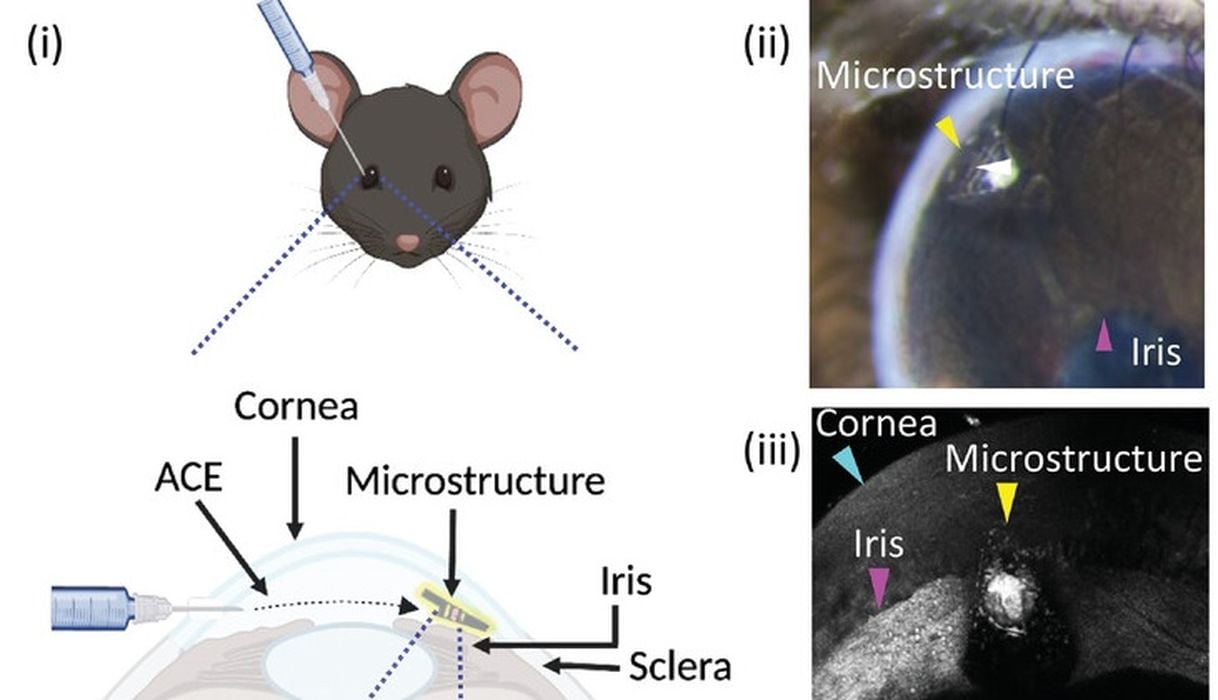
Researchers have developed a highly unusual 3D printed solution for bio-implants.
This one is a bit strange to explain, but here goes.
There are multiple medical conditions that can be solved by implanting biohybrid microstructures. These microstructures can hold living cells that produce a desirable molecule for the patient. Normally these would be surgically implanted in an appropriate spot in the body.
However, researchers at the KTH Royal Institute of Technology in Sweden developed a completely new approach. Instead of surgically implanting the structure, they would apply it to the eye.
Wait, how does that even work?
It turns out the eye is an outstanding location to place biohybrid microstructures. The eye is less resistant to intrusive implants, presumably because it is normally exposed to the world. This decreases the possibility of rejection.
Secondly, the eye is well connected to the human vascular system, and thus any bio-generated molecules will easily sail away into the rest of the body.
Finally, the eye surface is visible, and this means that medical practitioners can visually inspect the state of the implant over time. This is far more easy to do than if the implant was buried deeply in the body.
To produce the implant, the researchers used a two photon printing (TPP) system that can print the incredibly small microstructure required for this application. They used a specific bio-compatible resin that would be safe for the patient.
Finally, the printed implant was applied to the patient in a sutureless process that doesn’t damage the eye.
This is quite a radical application of 3D printing, and I have no idea how the researchers came up with the idea. Nevertheless, they seem to have proven that this is indeed a viable approach.
The approach is obviously research at this stage and requires significantly more research before it can be applied to humans. In fact, the researchers tested it only on mice, and there has not yet been human testing.
I think that will happen, as this is quite a compelling solution.
Via Wiley (Hat tip to Benjamin)
